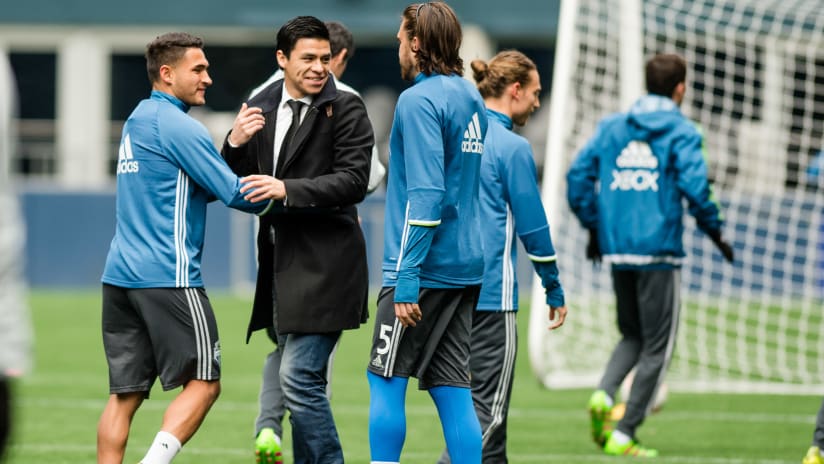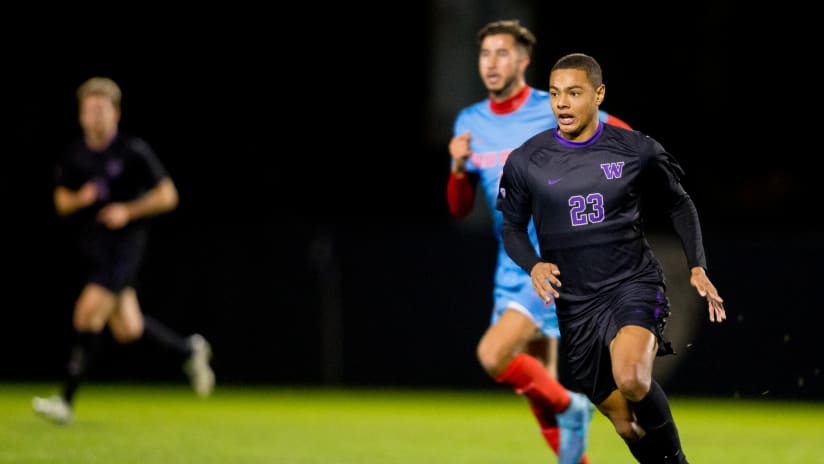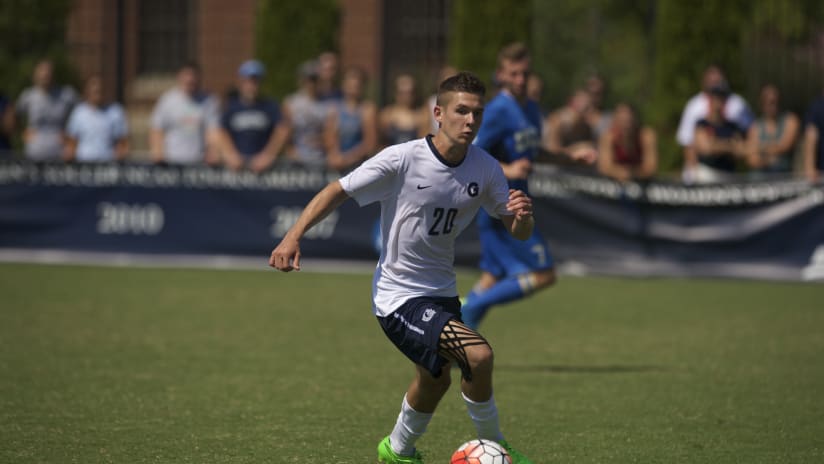The Copa America Centenario will be the first major competition to implement soccer’s latest round of rule changes.
The International Football Association Board (IFAB), a body made up of the four British football associations and FIFA that decides on changes to the Laws of the Game, made several amendments to the rules in May that will take effect for the 2016-17 season beginning with the Copa America Centenario.
- COPA AMERICA CENTENARIO: All you need to know about the tournament
Most notably, IFAB changed the rule that mandated an automatic red card for players who committed a foul in the penalty area that denied an obvious goalscoring opportunity.
The changes, which will officially take effect when the US and Colombia open the tournament at Levi’s Stadium on June 3, will require a bit of an adjustment from referees, players, coaches and fans alike.
The Copa América’s refereeing committee recently held a six-day boot camp for all tournament referees in Chicago to help ease that transition. The referees, who will all be stationed in Chicago for the duration of the tournament and will travel to match sites two days prior to games, underwent practical on-field exercises, classroom training sessions and physical testing at the Chicago camp, which concluded on Tuesday.
“We’ve got several days in which they’re doing practical sessions on the field with players where they’re practicing and doing situations that involve a lot of these law changes,” CONCACAF director of refereeing Brian Hall, a member of the Copa America’s referee committee, told MLSsoccer.com over the phone on Tuesday. “Then we’re doing theoretical sessions in the classroom where they’re watching video clips and there’s four FIFA instructors here providing structure to them. So they’re doing theoretical classroom sessions in which they’re watching video clips and discussing all the law changes, so there’s been a lot of focus on discussing these things.”
Because of logistical difficulties and the tight timeline around the start of the tournament, representatives from the refereeing committee will not meet with teams participating in the Copa America regarding the rule changes. Hall said the committee has sent all 16 participating federations materials regarding the law changes and that representatives from every team will be briefed further on the changes at every match coordination meeting, held the day before each game.
Hall also discussed the tournament’s policy to not hold extra time in the event of a tie at the end of regulation in the quarterfinals or semifinals, but to instead move directly to a penalty kick shootout. Hall said the policy, which has been used in past Copa America tournaments and is not an IFAB rule, was implemented because of the high number of games that will be held in a short timeframe for teams advancing at the tournament and the potential for high temperatures at many match venues.
A list of the major IFAB amendments is below:
Denial of an obvious goalscoring opportunity
- Denying an obvious goalscoring opportunity (DOGSO) in the penalty area is no longer automatically a straight red card, unless: (1) the offense involves holding, pulling or pushing, (2) if there’s no attempt to play the ball or no possibility of making a challenge or (3) if the offense would be punishable by a red card, no matter where it happened on the field (i.e., violent conduct).
- The rule for players who commit a foul to deny an obvious goalscoring opportunity outside the box has not changed. Those offenses will still earn an automatic red card.
Offside rule adjustments
- Hands and arms are no longer included when judging offside.
- Restarts following offside decisions will be taken at the spot where the attacker is when the referee whistles for offside. For example, if a player is offside when the ball is played, but runs toward his own goal to receive the ball, the free kick to restart play will be taken where the attacker receives the ball, not where he started his run.
Other changes
- Teams in extra time of the Copa America will be allowed a fourth substitute. Since this Copa America will only feature extra time, potentially, in the final, it would only apply in that match.
- The ball no longer has to move forward at a kickoff. It only needs to move for the game to start.
- Players who are injured as a result of a red or yellow card foul do not need to leave the field after receiving treatment.
- On penalty kick attempts, if a goalkeeper moves off his line prior to the ball being kicked, he will be issued an automatic yellow card. If the kick is missed when the goalkeeper moves off his line prior to the ball being kicked, the attempt will be retaken. The rule will apply in penalty kick shootouts, as well as in regular play.
- If a foul occurs off the field of play, the game will be restarted with a free kick on the sideline or endline. If a defender fouls an attacker off the field but in between the goal and the edge of the penalty area, it will result in a penalty kick. Previously, all fouls that occurred off the field resulted in a drop ball.
- Time taken for water breaks – which are held if certain weather conditions are met prior to kickoff – can now be officially added on at the end of a half.




